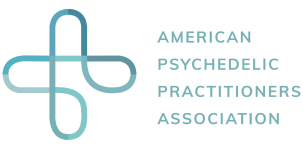Obsessive-compulsive disorder (OCD) is a mental health condition that affects millions of people worldwide. Characterized by intrusive thoughts or obsessions, and repetitive behaviors or compulsions, OCD can significantly impact a person’s daily life and overall well-being. While there are various treatment methods available for OCD, recent research has shown promising results in the use of ketamine therapy as a new option for relief.
Understanding OCD: A Brief Overview
The Impact of OCD on Quality of Life
The effects of OCD on a person’s quality of life can be severe. Individuals with OCD often struggle with relationships, work, and social activities due to their symptoms. The constant need to engage in rituals or repetitive behaviors can create significant disruptions in daily routines and prevent individuals from fully participating in life’s activities. As a result, individuals with OCD may experience feelings of shame, guilt, and isolation.
Imagine a person with OCD who has a fear of contamination. This fear can be so intense that they may spend hours each day cleaning and sanitizing their environment. They may avoid public places or social gatherings for fear of coming into contact with germs. This fear and avoidance can lead to strained relationships with friends and family, as well as difficulties in maintaining employment. The constant preoccupation with cleanliness and the fear of contamination can consume their thoughts, making it difficult to focus on other aspects of life.
Another common obsession in OCD is the need for symmetry. Individuals with this obsession may spend excessive amounts of time arranging and organizing objects to achieve a sense of balance and order. This preoccupation with symmetry can interfere with daily tasks and responsibilities, causing frustration and distress. It can also lead to difficulties in social situations, as the individual may feel the need to constantly adjust and rearrange their surroundings to maintain symmetry.
Current Treatment Methods for OCD
Traditional treatment options for OCD include cognitive-behavioral therapy (CBT) and medication management. CBT aims to help individuals identify and challenge their obsessive thoughts and learn healthier coping strategies for managing their compulsive behaviors. Through therapy, individuals can develop skills to recognize when their obsessions and compulsions are irrational and learn techniques to resist engaging in them. This can help reduce the frequency and intensity of OCD symptoms.
Medications, such as selective serotonin reuptake inhibitors (SSRIs), are often prescribed to help reduce anxiety and alleviate OCD symptoms. These medications work by increasing the levels of serotonin in the brain, which can help regulate mood and reduce obsessive thoughts and compulsive behaviors. However, it is important to note that medication alone is not a cure for OCD and is often used in conjunction with therapy for optimal results.
While these treatment methods can be effective for many individuals, there is still a significant portion of the OCD population that does not respond adequately to traditional therapies. This has led to ongoing research and exploration of alternative treatment options, such as deep brain stimulation and transcranial magnetic stimulation. These innovative approaches aim to target specific areas of the brain involved in OCD and provide relief for individuals who have not found success with traditional treatments.
It is critical to remember that OCD is a complex disorder that affects each individual differently. The severity of symptoms can vary, and treatment plans should be tailored to meet the unique needs of each person. With ongoing research and advancements in treatment options, there is hope for individuals with OCD to find relief and improve their quality of life.
The Science Behind Ketamine Therapy
How Ketamine Works in the Brain
When administered in controlled doses, ketamine can interact with the NMDA receptors and increase the production of a neurotransmitter called glutamate. This increase in glutamate levels leads to the release of other neurotransmitters, such as gamma-Aminobutyric acid (GABA) and brain-derived neurotrophic factor (BDNF). These chemical changes in the brain have been associated with the rapid alleviation of depressive and anxious symptoms.
The Role of Ketamine in Mental Health Treatment
Studies have shown that ketamine has a unique mechanism of action that sets it apart from traditional antidepressants. Unlike SSRIs, which may take weeks or even months to produce noticeable effects, ketamine has been found to provide rapid relief from symptoms. This rapid onset of action makes ketamine therapy a promising option for individuals with treatment-resistant OCD who have not responded well to other forms of treatment.
Ketamine Therapy for OCD: The Process
Preparing for Ketamine Treatment
Prior to beginning ketamine therapy, a healthcare professional will inform the individual about the treatment process, potential risks, and benefits. It is essential to address any questions or concerns and establish a collaborative approach to the treatment plan. Additionally, the individual may be advised to discontinue certain medications or substances that could interact with ketamine.
What to Expect During a Ketamine Therapy Session
Ketamine therapy sessions are typically conducted in a controlled and monitored environment, such as a medical clinic or a healthcare professional’s office. The medication is commonly administered intravenously over a period of time, allowing the individual to relax comfortably during the session. Throughout the treatment, vital signs and the individual’s response to the medication are closely monitored.
The Potential Benefits of Ketamine Therapy for OCD
Immediate Relief from OCD Symptoms
One of the key advantages of ketamine therapy for individuals with OCD is the potential for immediate symptom relief. Unlike other treatment methods that may require weeks or months to show results, ketamine has been shown to produce rapid improvements in obsessions, compulsions, and anxiety. This quick response can lead to a significant improvement in a person’s overall quality of life.
Long-Term Effects of Ketamine Therapy
Besides its immediate benefits, ketamine therapy may also have long-term effects on OCD symptoms. Some individuals have reported sustained improvements even after the initial treatment sessions. However, additional research is needed to fully understand the long-term outcomes of ketamine therapy for OCD and to identify the most effective maintenance protocols.
Risks and Side Effects of Ketamine Therapy
Common Side Effects of Ketamine
Although ketamine therapy can be well-tolerated by many individuals, it is important to be aware of potential side effects. Some common side effects associated with ketamine therapy include dizziness, nausea, blurred vision, and an increased heart rate. These side effects are usually temporary and typically subside shortly after the therapy session ends.
Understanding the Risks of Ketamine Treatment
While ketamine therapy for OCD has shown promising results, it is essential to evaluate and address potential risks. As with any medical intervention, there are considerations regarding the appropriate dosage, possible drug interactions, and potential dependency. Additionally, individuals with certain medical conditions or a history of substance abuse may not be suitable candidates for ketamine therapy.
Parting Words
In conclusion, ketamine therapy offers a new option for relief from OCD symptoms for individuals who have not responded adequately to traditional treatment methods. With its unique mechanism of action and rapid onset of benefits, ketamine holds promise as a potential breakthrough in mental health treatment.
However, it is crucial to approach ketamine therapy with comprehensive assessment, preparation, and ongoing monitoring to ensure its safe and effective use. As research continues to unfold, ketamine therapy may become an increasingly valuable tool in helping individuals find relief from the burdens of OCD.
To learn if ketamine infusion therapy is the right treatment option for you, reach out to Waybridge today to schedule a mental health consultation.




